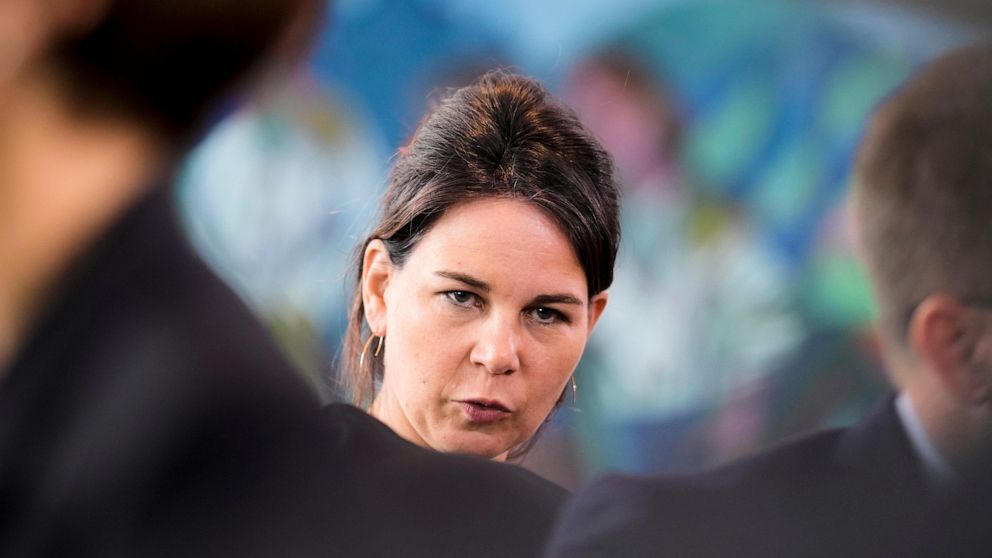BERLIN — Senior officials from dozens of nations meeting in Berlin remained divided Wednesday on how to meet international climate goals, with some pushing for a phaseout of fossil fuels and others insisting that oil and gas can continue to play a role in the future — provided their emissions are somehow contained.
The two-day Petersberg Climate Dialogue hosted by Germany heard calls for a new target on ramping up renewable energy to be negotiated and agreed on at this year’s U.N. climate summit in December.
German Chancellor Olaf Scholz suggested that the goal could be a tripling of newly installed solar, wind power by 2030, echoing a target proposed recently by the International Renewable Energy Agency.
“This would send a clear signal to the real economy and to finance about where the journey is going,” he told delegates from about 40 countries.
German Foreign Minister Annalena Baerbock insisted this proposal shouldn’t detract from the need to drastically cut fossil fuel use, a position shared by other European nations and vulnerable island states present at the Berlin talks.
“This course correction needs to include an accelerated global expansion of renewables, greater energy efficiency and the phaseout of fossil fuels,” she said.
The United Arab Emirates, which will host the U.N. talks in Dubai, backed the idea of significantly boosting wind and solar power, but made clear that it wants to keep fossil fuels as an option for the foreseeable future.
Sultan al-Jaber, the UAE official who will chair COP28 climate talks in Dubai, said his oil-rich country wants “a comprehensive, holistic approach to an energy transition that included all sources of energy.”
“We know that fossil fuel will continue to play a role in the foreseeable future, helping meet global requirements so our aim should be a focus on ensuring that we phase out emissions from all sectors whether it’s oil and gas or high emitting industries,” he said. “In parallel we should assert all effort and all investments in renewable energy and clean technology space.”
Al-Jaber acknowledged that time is running out to keep alive the agreed on target of limiting global warming to 1.5 degrees Celsius (2.7 Fahrenheit). Doing so would require global emissions to halve by 2030, sharply bending down the current upward curve of greenhouse gases in the atmosphere.
Climate campaigners have expressed concern that technologies proposed for capturing fossil fuel emissions aren’t tested at scale…
Click Here to Read the Full Original Article at ABC News: Business…

